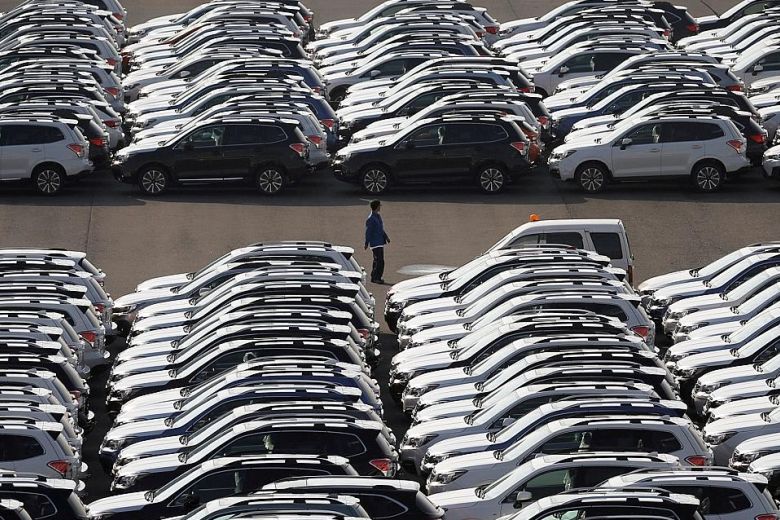Japan gross domestic product in fiscal 2018 is now projected to grow 1.8% year on year in price-adjusted real terms, up from the previous estimate of 1.4% made in July, the government’s latest economic outlook showed Tuesday.
The economy’s growth in the year through March 2019 will be led by domestic demand, such as capital investment and personal spending, according to the outlook adopted at the day’s Cabinet meeting, Jiji Press reported.
On the back of strong overseas economies, Japan’s exports are expected to stay firm, the government said. Meanwhile, the unadjusted nominal growth rate estimate was left unchanged at 2.5% reflecting tardy progress of inflation.
In line with the growth rate estimate, the country will see its nominal GDP expand to an all-time high of ¥564.3 trillion ($5.01 trillion), closer to the government-set target of ¥600 trillion for around 2020.
The latest fiscal 2018 outlook also showed that personal spending will increase 1.4% from the year before in real terms thanks mainly to improvements in employment and income situations, higher than a 1.2% rise forecast for fiscal 2017.
Capital expenditures are estimated to grow 3.9% on expectations for firms to step up investment in technologies to cover labor shortages, up from 3.4%. Exports are seen to post a solid rise of 4%, although the increase is smaller than 4.8% projected for the current fiscal year.
The government forecasts the consumer price index will grow 1.1% in fiscal 2018, after rising an estimated 0.7% in fiscal 2017.
The economic projections will be used to estimate the government’s tax revenues while compiling its fiscal 2018 budget. Meanwhile, the government raised its fiscal 2017 real growth estimate from July’s 1.5% to 1.9%.
Japanese exports accelerated sharply last month, yet again pointing to growing momentum in the world’s third-biggest economy. There was just one catch: Inflation was stubbornly low and well off the central bank’s 2% target, Reuters reported.
The combination of steady growth and benign consumer prices means the Bank of Japan will lag behind other major central banks in exiting crisis-era monetary stimulus, with analysts expecting Governor Haruhiko Kuroda to keep the liquidity tap wide open at a meeting later this week.
“Inflation expectation is in a gradual recovery trend, but a gap between firm economic indicators and weak price indexes remains wide open,” said Barclays Securities economist Yuichiro Nagai.


